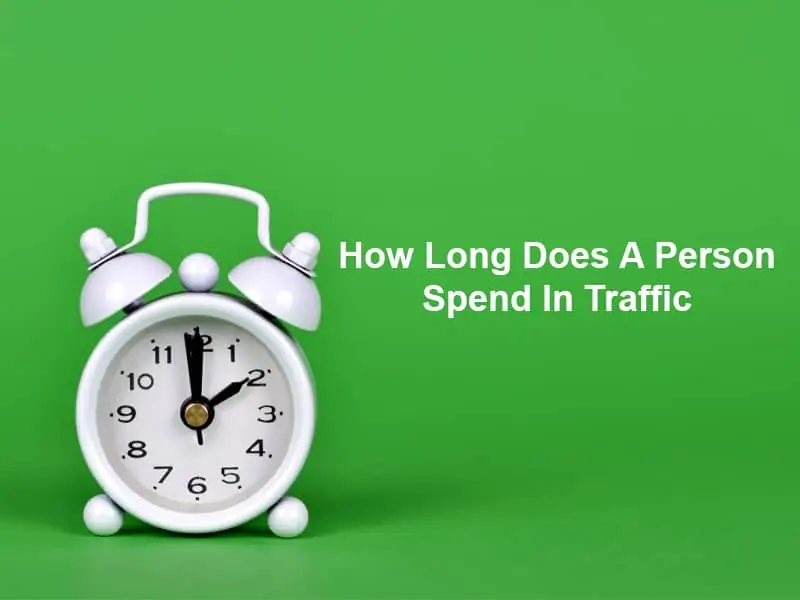Exact Answer:- Over 90 minutes a day
India is the second most populous country after China and has the third largest road network in the world. The vast and geometrically increasing population surpasses the arithmetically increasing road networks. Thus, it is natural for our country to be more congested than any other country.
People in indian metro cities spend maximum time commuting to various destinations. Let’s take the example of Mumbai, which ranks second among 416 cities in the Traffic Index 2020. In Mumbai, every morning and evening, about 10 million people commute to various destinations and return to home. Hence, congestion is common.
While the time spent in traffic varies from city to city, the average time in most of the Indian cities is 29 minutes per day which gets stretched to more than an hour in metro cities. In Bengaluru, people waste 243 hours per year in traffic.

How Long Does A Person Spend In Traffic?
| Year | Time Spent In Traffic |
| 1982 | 9 mins |
| 2003 | 20 mins |
| 2020 | 90 mins |
Congestion in roads represents the unnecessary piling of vehicles. According to the Ministry of Surface Transport, the total number of registered vehicles has increased from 150 million in 2012 to 253 million in 2017.
People in India prefer road transport system over all the other medium of transport and over 60% of the population uses personal vehicles for commuting. Hence, congestion is a common natural consequence.
According to the Urban Mobility Report of 2005, you would have spent an approximate of 32 minutes to cover a trip of 23minutes in 1982. But, covering the same trip in 2003 would have taken you 40 minutes. And this time keeps increasing subsequently depending on your choice of vehicle and time of the day.
In 1982, only 32% of major road system was congested which has drastically folded out to 67% in 2003. Due to this increase in congestion time, people lose drastically more amount of time in the traffic. This leads to the wastage of extra hours which could have been used in some more productive ways.
Why Does A Person Spend So Long In Traffic?
The increase in time spent in traffic is the result of increase in congestion in roads. The traffic congestion is due to the inadequacy of traffic police, the increasing number of population and the improper planning of city development.
The number of traffic police is very less than the required number especially in metropolitan cities. This leads to the breaking of rules by the common people leading accidents and unncessary congestion.
The geometrically expanding population also leads to higher purchase of vehicles and popularity of private transport. People, these days rarely prefer public means of transport. This results in increase in the number of vehicles on the road thereby leading to traffic jams and congestion.
The improper planning of city development has resulted in construction of roads with less longevity. In most of the cities, the roads are too narrow to accomodate the increasing number of vehicles. In addition to that, most of the time, roads are under construction. This leads to unnecessary wastage of time in traffic.
Congestion also leads to degradation of our environment due to unnecessary usage of fuels and application of horns. It leads to the increase in pollution levels thereby posing a threat to the health of all living beings. It not only eats away our valuable time, but also plays an instrumental role in deterioration of our environment and health.
Conclusion
The solution to these terrific traffic nightmares can only come through the proper functioning of goverment and the sincere cooperation of the people.The government should plan and work on infrastructure, and development of roads.
On the other hand, the people should also be encouraged to make the maximum use of public transport system. They should be motivated to share vehicles and abide by the traffic rules.
The teamwork and cooperation between government and common people can only save our extra hours which can play a pivotal role in the development of our nation and human race.